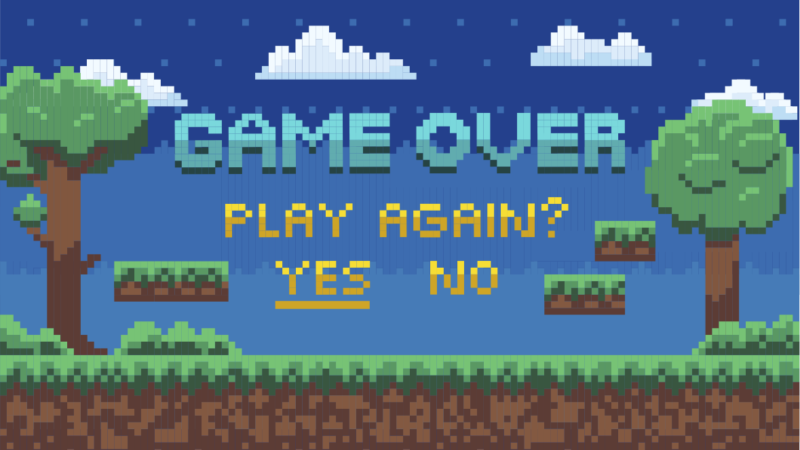by Daniel Lopez and Usman Shaikh
Video game streaming, as a part of the larger gaming industry, has experienced considerable success over the past decade, with major streaming platforms such as Twitch averaging about 1.645 billion hours, or 187,785 years, watched per month. The content creators themselves offer a variety of different experiences, from hardcore gamers speedrunning Dark Souls to the more laidback Virtual YouTubers casually digging for building materials in Minecraft, there is something for everyone to enjoy. Not only that, live-streaming in particular offers a unique opportunity for the fanbase to interact in real time with the content creators themselves and with other members of the community. While there is a variety of experiences to be had, the one thing in common with all video game streamers is that they are using other developer’s intellectual property.
Unlike, say, music licensing, video game streamers are presented with a more complex intellectual property issue: to what extent are video game streamers allowed to use another developer’s video game in their streams?
Developers and streamers have had a strained relationship over the years. On the one hand, streamers play a major part in contributing to a developer’s success. In 2018, indie developer InnerSloth released Among Us, and with an average of 25 daily players on its servers it was a flop. However, thanks to Twitch streamers like xQc and sodapoppin to name a few, this year Among Us grew to become one of the most popular games ever with around half a billion active users in November. On the other hand, certain developers have made consistent attempts to censor content creators using their games.
Just this past year Nintendo, creator of some of the most beloved franchises in the gaming world, shut down one of the longest running Super Smash Bros. tournaments for attempting to live-stream their tournament in light of the current COVID-19 pandemic. This outraged the gaming community leading to the hashtags #FreeMelee and #SaveSmash trending around the world on Twitter. Many developers accept that streamers offer them a form of free advertising and so will not pursue legal action, while other developers will issue takedown notices or cease and desists to maintain control of their intellectual property. Most streamers are forced to comply since they don’t have nearly enough capital to go up against the likes of Nintendo.
Whenever developers like Nintendo start rampaging through their own community, the phrase “Fair Use” often gets thrown around. Under copyright law, the doctrine of Fair Use is a defense against copyright infringement. The idea behind this is that even if your use of someone’s intellectual property is unauthorized, in order to promote freedom of expression, the courts will allow it because the purpose of your use is sufficiently “transformative,” meaning you added something new to the original game.
Some uses are explicitly considered Fair Use, like commenting on or criticizing a game. For example, a stream showing clips of the recently released Cyberpunk 2077 with all of the game breaking bugs while providing a review is considered Fair Use because criticism is considered Fair Use.
Streamers that simply play through games while interacting with their fan base, also known as “Let’s Plays,” don’t however fall neatly into any explicit category. Instead, courts use a four-factor test when looking at the question of Fair Use in these instances. When evaluating your content, a judge will look at:
(1) The purpose and character of your use;
(2) The nature of the copyrighted work;
(3) The amount and substantiality of the portion of the work you used; and
(4) The effect of your use on the potential market.
Additionally, the court can look to other considerations when evaluating Fair Use. The fourth factor above is an important consideration when it comes to Let’s Plays. Some developers, as mentioned above, benefit immensely from video game streamers playing their game to an audience. Whereas, other developers argue that watching Let’s Plays reduces the consumers incentive to buy their game, especially when it comes to narrative focused games. Unfortunately, because of the subjective nature of the Fair Use test, this means that apart from actually facing the proverbial final boss in a court of law, you can’t know for sure whether your particular video game stream would be considered Fair Use.
So, as a video game streamer, if you don’t have enough lives to take on the final boss what should you be aware of to avoid a game over? If you really want to play it safe, stick to streaming video games where the developers have made it clear in their Terms of Use that you are allowed to create content using their games. For example, Riot Games, developer of the massively popular League of Legends, carves out exceptions for content creators, allowing you to use their game in your streams. While a majority of developers now have similar terms and conditions, such permission may be revocable at any time by the developer. Because of this, it is important to regularly check up on the Terms of Use of the games you choose to stream to make sure you’re still in the clear.
U.S. Law Group routinely advises clients on issues related to intellectual property infringement and Fair Use. Our attorneys are at the forefront of cutting-edge areas of the law that affect game developers, gamers, and streamers. Please visit our site to learn more about our Intellectual Property and Entertainment & New Media practice areas. Content in this article should not be considered legal advice.

